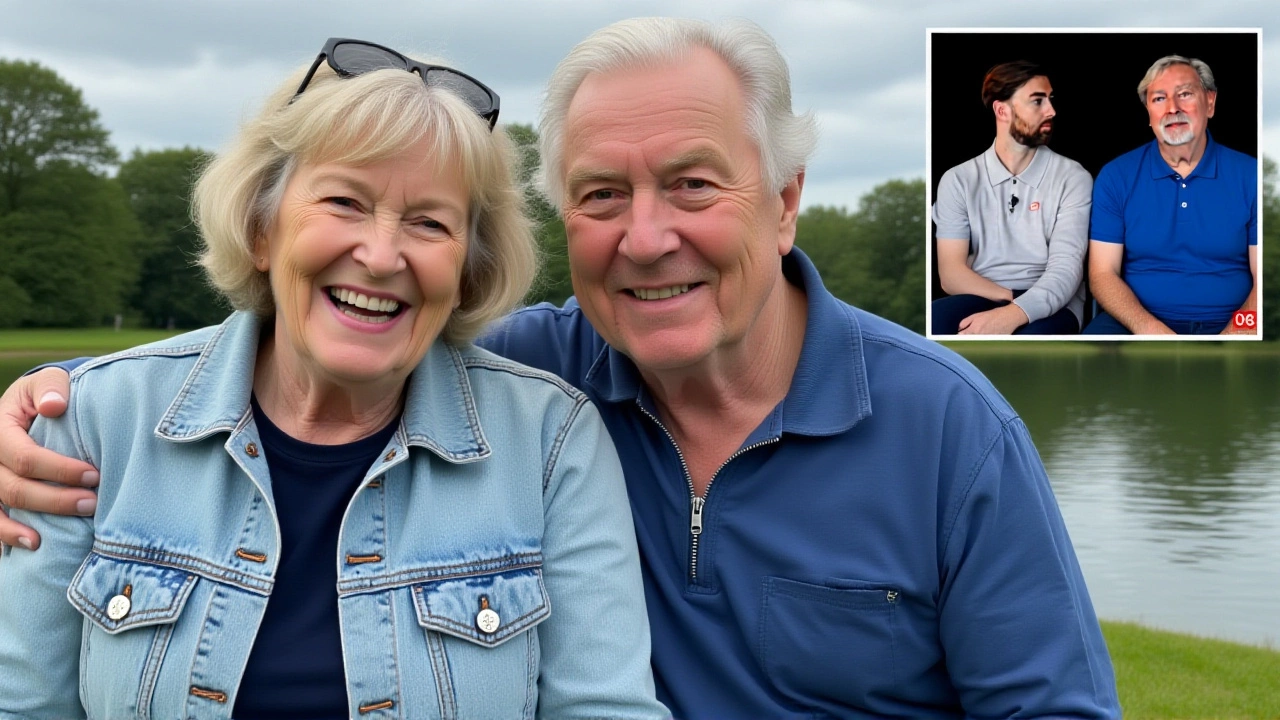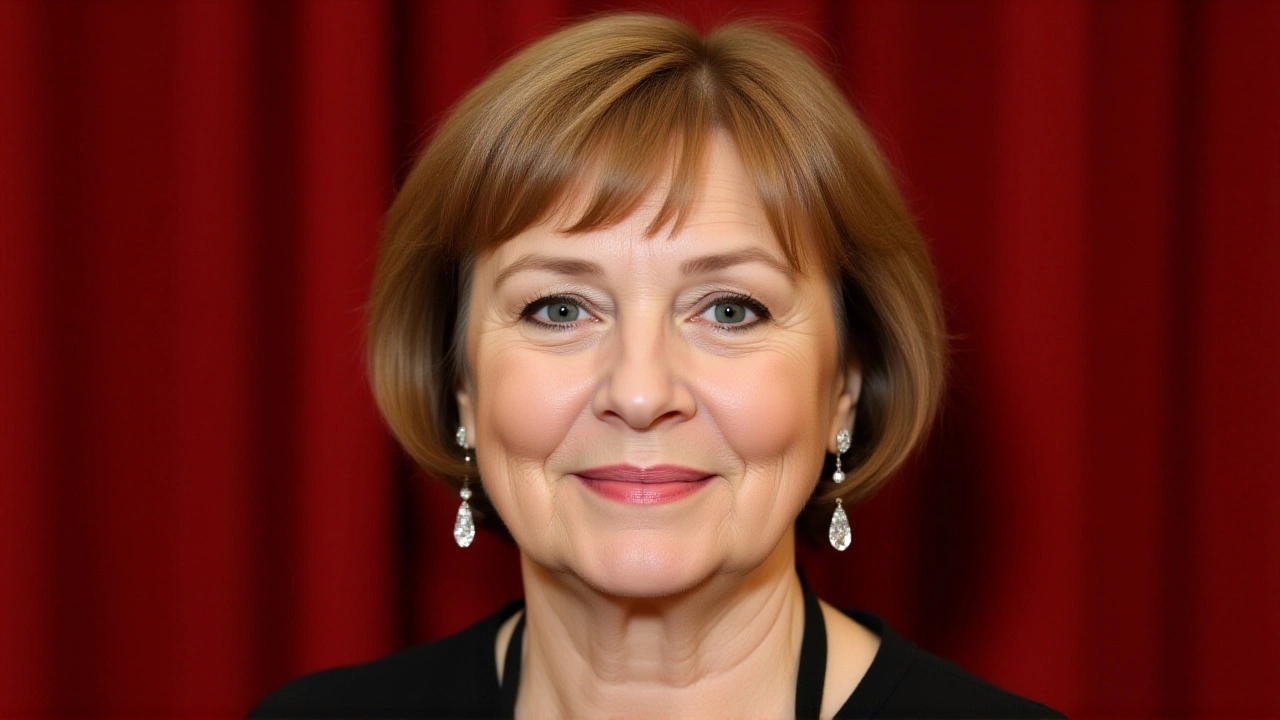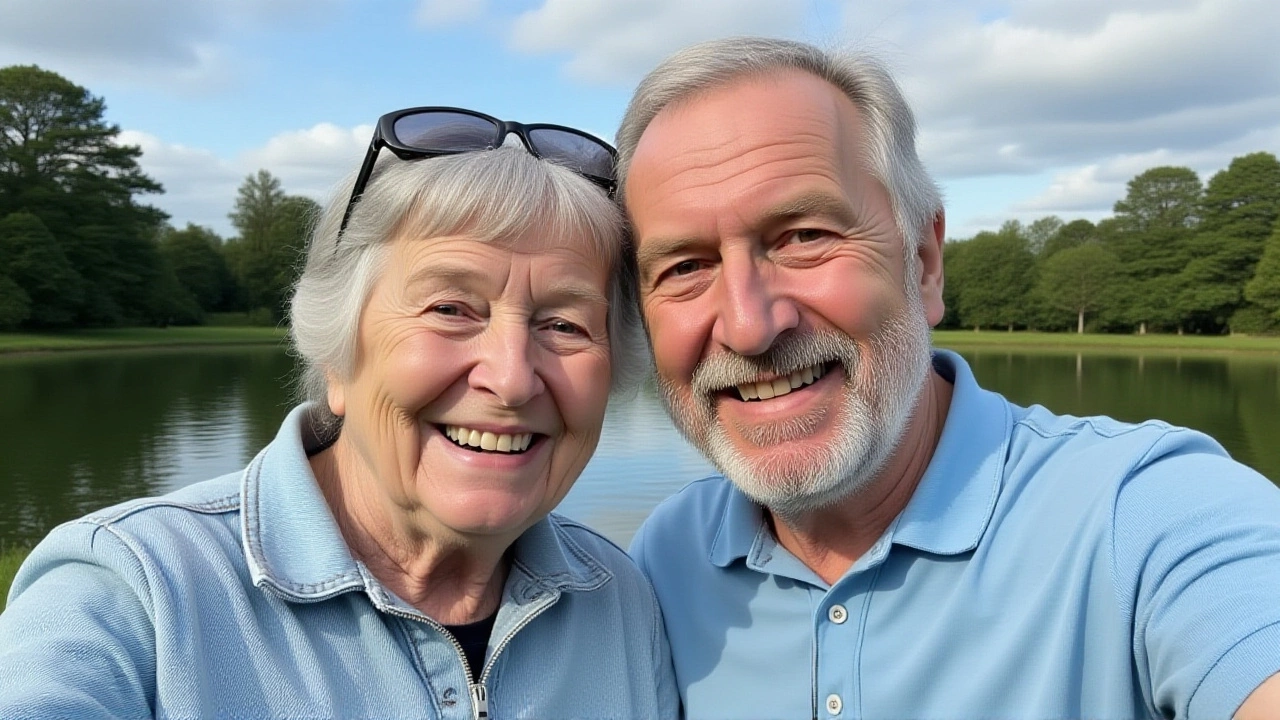When Pauline Quirke first noticed the words on her script wouldn’t stick, she didn’t panic. She called her husband. That was November 2020. Now, nearly five years later, the Pauline Quirke fans remember — the sharp-witted star of Birds of a Feather, Emmerdale, and Broadchurch — still laughs at her own jokes, still calls her son "my best friend," and still lights up when her grandchildren run into the room. But the disease creeping into her mind? No one knows how fast it’s moving. Not even her family.
A Diagnosis That Crept In Quietly
It didn’t start with forgetting names or getting lost. It started with lines. Pauline Quirke, 66, was rehearsing for a role when she phoned her husband, Steve Sheen, and said, "The words are not going in." That was the first crack. For the next two years, they told themselves it was stress. Fatigue. Aging. "It’s so gradual," Steve told BBC Breakfast on November 17, 2024. "You think, ah, she’s alright. Then you look back — we’re three or four years in. It’s different now." The official diagnosis came in 2021. The family kept it private. Until January 15, 2025, when Steve issued a quiet statement: Pauline was stepping away from all professional and commercial work. "It is with a heavy heart," he wrote. "We kindly request privacy." But then, in November 2024, they broke that silence — not for sympathy, but for science."She’s Still the Funniest Person I Know"
Their son, Charlie Quirke, 31, sat beside his father on BBC Breakfast, eyes bright with tears but voice steady. "My mum has always been my best friend," he said. "And her condition has not changed that. She is still happy, loving... still, I can say, the funniest person I know in the world." That’s the paradox. Pauline Quirke recognizes every face. Every hug. Every "I love you." She doesn’t forget who they are. But she forgets what happened yesterday. She forgets the name of the play she starred in last decade. She forgets the script she’s holding. And yet — she laughs. She teases Charlie about his cooking. She sings along to old sitcom theme songs. "That’s the thing," Charlie added. "No one tells you what to expect." It’s this uncertainty that drove the family to speak out. They didn’t want to be the next heartbreaking headline. They wanted to be the reason someone else notices a loved one struggling — and gets help sooner.
The Walk That Carries Her Legacy
In December 2024, Charlie Quirke will begin a 140-kilometre walk across Buckinghamshire, ending at the doors of the children’s drama academy his parents co-founded in 2007. The Buckinghamshire Children’s Drama Academy — once buzzing with auditions, rehearsals, and the kind of noisy, messy joy Pauline thrived on — has been quiet since her diagnosis. Now, it’s the finish line of his journey. He’ll stop at places that mattered to her: the theater where she first performed as a teenager, the park where she walked her dogs, the local café where she’d meet friends after rehearsals. Each kilometer, he’ll carry a note from someone who remembers her. A fan. A student. A neighbor. "She’d hate me crying," he said. "So I’ll walk. And I’ll talk to her. And I’ll hope someone else sees this and thinks — maybe I should check on my mum." The walk supports Alzheimer's Research UK, the London-based charity funding the very studies that might one day change outcomes like Pauline’s. The family has pledged ongoing support, even as they retreat from the spotlight. "We don’t know how long she’ll have," Steve said. "But we know what we can do now."Why This Matters Beyond One Family
Pauline Quirke’s story isn’t rare. It’s terrifyingly common. Over 900,000 people in the UK live with dementia. That number is expected to hit 1.6 million by 2040. Yet, as Charlie pointed out, most people don’t know the early signs. They wait for memory loss. But dementia often starts with language slips, confusion over routine tasks, or — like Pauline’s — trouble learning new material. Experts say early detection can delay progression by up to three years with the right interventions. But stigma and silence keep people from seeking help. "We thought it was just stress," Steve admitted. "That’s what so many families think." The Quirke-Sheen family’s decision to speak out flips the script. Instead of hiding, they’re holding up a mirror. And in doing so, they’re turning grief into a force for change.
What Comes Next
Charlie’s walk begins December 1, 2024. The family plans to release a short documentary next spring, featuring interviews with students from the drama academy and neurologists working on dementia therapies. Meanwhile, Pauline remains at home in Buckinghamshire, surrounded by photos, music, and the people who love her most. She doesn’t remember every day. But she remembers how to smile.Frequently Asked Questions
How common is early-onset dementia like Pauline Quirke’s?
While most dementia cases occur after age 65, around 5% of cases are diagnosed before 65 — known as early-onset dementia. Pauline’s diagnosis at 61 falls within this group. Symptoms often begin subtly, with memory lapses in familiar tasks or language difficulties, making early detection challenging without medical evaluation.
Why did the family change their mind about privacy?
Though they initially requested privacy after Pauline’s 2021 diagnosis, the family realized many people misinterpret early dementia symptoms as normal aging. Charlie stated his mother would want others to recognize the signs sooner. Their public appearance on BBC Breakfast was a deliberate act to reduce stigma and encourage early testing.
What role does Alzheimer's Research UK play in dementia care?
Alzheimer's Research UK funds over 100 research projects across the UK, focusing on early detection, drug development, and understanding the biological causes of dementia. Since 2006, the charity has invested over £200 million into research — including studies on biomarkers and lifestyle interventions that could delay onset.
How can people support dementia awareness locally?
Volunteering with local dementia support groups, attending free awareness workshops hosted by the Alzheimer’s Society, or participating in community walks like Charlie’s are effective ways to help. Many UK libraries and community centers now offer memory screening events — simple, confidential checks that can catch early signs.
Is Pauline Quirke still involved in any creative work?
No. Pauline retired from all professional and commercial duties in January 2025. However, her legacy lives on through the Buckinghamshire Children’s Drama Academy, which continues operating under her husband’s leadership. Students there still perform pieces she helped shape, and her voice echoes in their laughter on stage.
What’s the long-term prognosis for someone with Pauline’s type of dementia?
Without knowing the specific type — likely Alzheimer’s or frontotemporal dementia — prognosis varies widely. On average, individuals live 4 to 8 years after diagnosis, but some survive 20 years. The key factor is quality of care, emotional support, and maintaining routines. Pauline’s continued joy and recognition of loved ones are positive signs of preserved emotional memory, which often lasts longer than factual recall.
